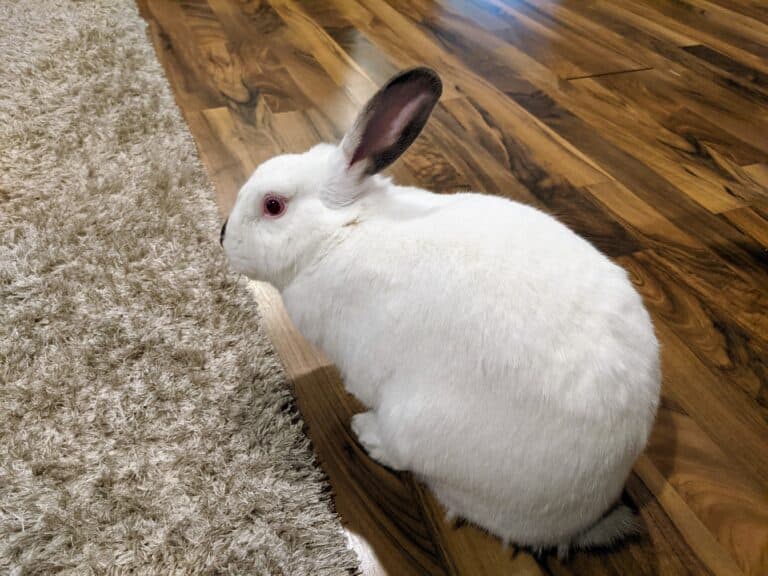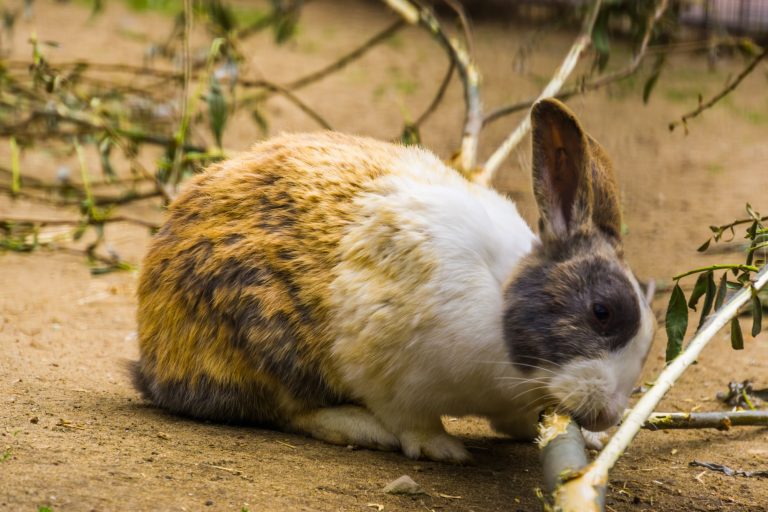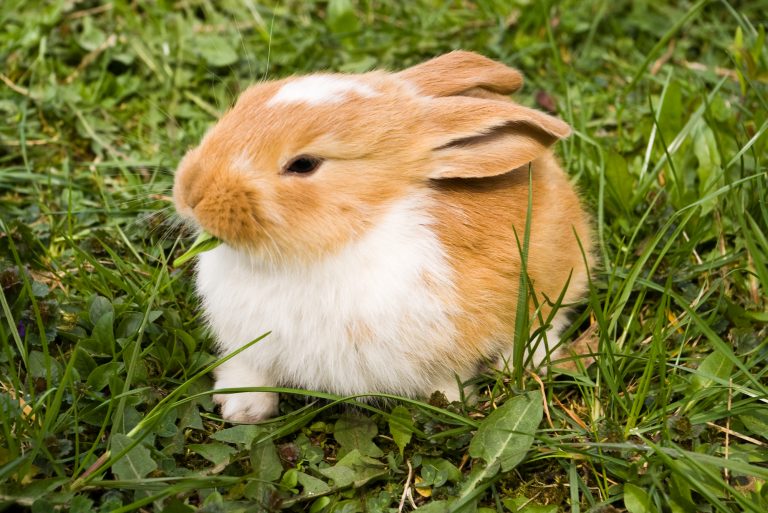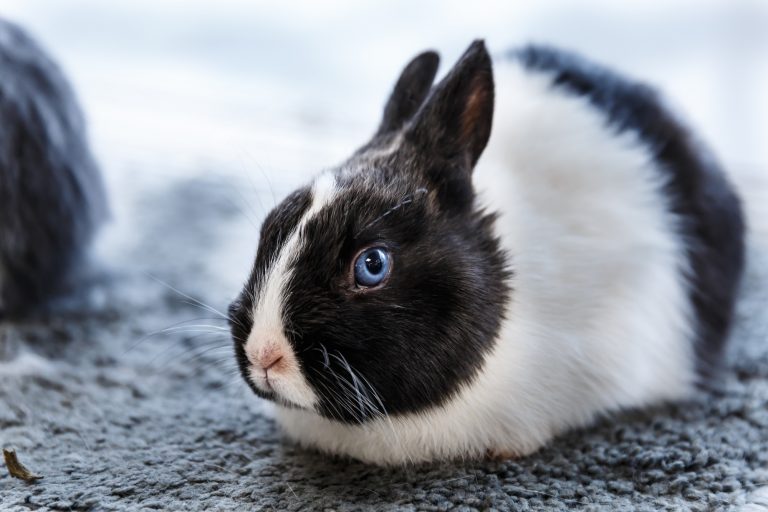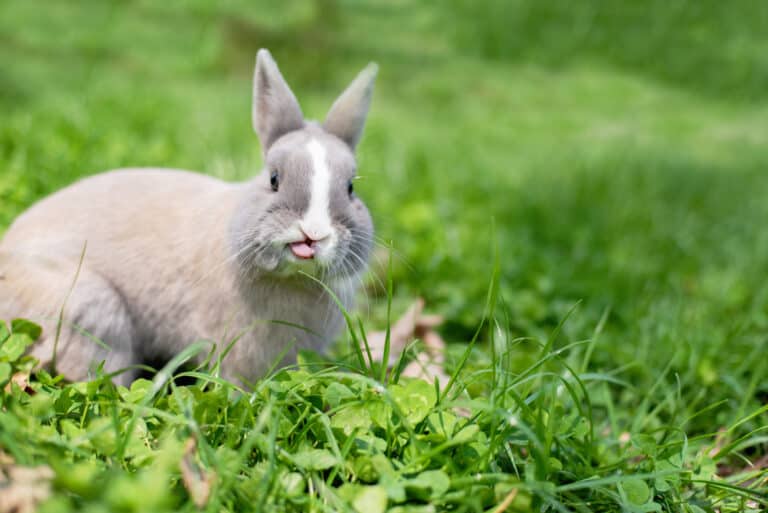Do Rabbits Get Fleas?

While running your hand through your bun’s soft, fluffy fur, you spot something. What are those tiny brown specks on his coat, you wonder. You go for a closer look, and you see… fleas. And here you thought that only cats and dogs get those pesky little buggers. But yes, rabbits can have fleas, too! Find out the best way to deal with those annoying critters.
How Does Your Bun Get Fleas Anyway?
The most common way for your rabbit to catch fleas is through other pets in your home, such as cats and dogs. Fleas don’t discriminate between species, after all. Rabbits, with their dense coat, are as inviting to fleas as other furry animals.
If you let your bun out for some sun and fun, it’s pretty easy for him to pick up these insects outside your home. The pesky buggers thrive in the moist, shady areas of your yard or garden, making them a threat to rabbits who make frequent forays outdoors.
You can also inadvertently carry fleas to your pet when you step outside. Excellent jumpers as they are, fleas can hitchhike on your pant legs for a trip inside your house.

How Can You Tell If Your Rabbit Has Fleas?
Because of your bun’s thick fur, it’s not easy to see if he harbors some unwanted guests on his coat. But there are indicative signs of a flea infestation.
These include:
- Itching: Most bunnies are sensitive to flea bites, so if you see your rabbit biting, scratching, or licking himself, be on the lookout for the pesky creatures. Other pets in your home may also show this sign, which makes it almost certain that your fur babies have fleas.
- Flea droppings: The size of pepper grains, flea poop is reddish-brown and looks like specks of dirt. Seeing these on your bun’s fur usually means you have a flea problem on your hand. To determine if the flecks are really droppings and not just simple dirt, wipe up some grains with a damp paper towel. A reddish-brown ring will form around particles of flea droppings because the poop contains dried blood.
- Sores, scaling, or bald spots: Because flea bites are itchy, your bun may keep scratching until sores or bald spots develop on his coat. Dandruff-like scaling can also appear on the skin.
- Live fleas: Of course, the presence of live fleas is the clearest sign of an infestation. But then, fleas are sometimes hard to spot because they burrow deep into the coat. The area around the neck and along the spine are the best places to look.
How Can You Get Rid of Fleas on Your Rabbit?
Unfortunately, there are no rabbit-specific flea medications. The products in the market that treat flea infestations are made for cats and dogs, putting a question to the treatments’ safety and efficacy for rabbits. Owing to their sensitive systems, the wrong medication can have harmful – or even fatal – effects on your bun.
But don’t worry. Some of the flea treatments for cats and dogs are also safe for rabbits. You’ll just need to ask your vet for guidance on what medication to use.

Safe Flea Treatments for Rabbits
For Mild Infestations
If your bun only has few fleas, a flea comb is the safest treatment you can try because it doesn’t involve the use of chemicals. Sometimes, running a flea comb through your pet’s coat will do the trick in getting rid of the insects.
Dip the comb in soap and water or alcohol after running it through the fur to drown the fleas that cling to the teeth. Rinse it well before using it again on your bun.
For Severe Flea Problems
A severe infestation requires more drastic measures. Like we mentioned before, there are safe medications for rabbits that can help keep fleas away. These include topical treatments such as Revolution and Advantage.
We can never emphasize enough the importance of consulting your vet before using any of the flea medicines for rabbits. Aside from the danger of choosing one that’s unsafe for your pet, you’ll also need guidance regarding the accurate dosage and proper product application.
Correct dosing information is vital because the dosage of the solution will depend on your rabbit’s weight, and using too much can lead to fatal consequences.
Unsafe Flea Treatments for Rabbits
Some flea medications that are safe for cats and dogs can cause adverse reactions, or even death, in rabbits. Examples of these products are Sentinel and Frontline. For this reason, you should also keep dogs and cats who have been treated with these flea medications away from your bun for a few days.
Avoid using flea collars on your bun. The chemical dosage on the collar may be too high, and because rabbits don’t like the feel of the collar on their neck, they may harm themselves if they try to bite it off.
We also don’t recommend the use of flea dips and shampoos. Rabbits hate being wet, and the stress caused by the bath can lead to shock.
When Should You Apply Flea Treatment for Rabbits?
You should use flea medication on all your fur babies and not just on your rabbit to prevent other pets from giving fleas to your bun. A year-round treatment protocol works best in preventing the bothersome insects from infesting your animal companions.
Tips to Prevent Flea Infestation
Because eliminating fleas can be a challenge, it’s best to prevent them from making your home their home, too. Without resorting to chemicals, you can thwart these pests’ attempts to gain access to your fur babies. Here are benign ways you can use to defend against fleas:
- Regularly clean your home: Vacuum and steam clean your entire living area and then seal the dust bag to prevent fleas and their larvae from escaping. Throw the bag in an outside bin.
- Wash pet beddings weekly: Use hot water (around 130 degrees F) to kill all fleas and their eggs.
- Clean and disinfect your pet’s cage: Be sure to use rabbit-safe disinfectant, and don’t place your bun immediately into the hutch after disinfecting. Read the label to determine the required waiting period before your pet can enter the cage.
Dealing with fleas is one of the responsibilities you take on when you bring home a pet bunny. Fortunately, there are many ways you can get rid of the annoying critters. The important things to remember are to review the ingredients in the flea medicines for rabbits you intend to use and seek your vet’s advice before starting any treatment.
We hope you enjoyed this post! If you did, will you give it a share or two 🙂 Thank you! ~from Every Bunny Welcome


